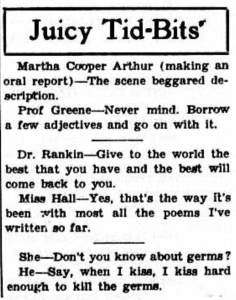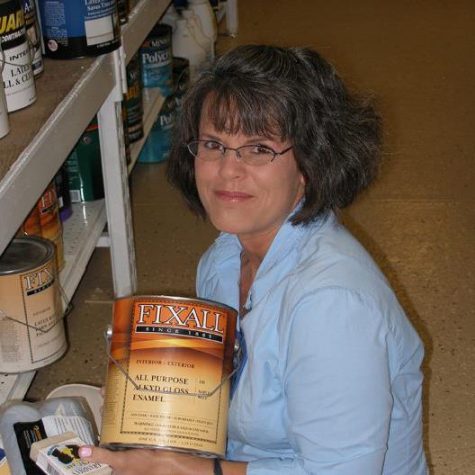App State and Wilkes Community College partner up to create new Career and Technical Education concentration
December 7, 2019
App State’s Career and Technical Education program now offers a concentration in agriculture education, housed in the Reich College of Education’s curriculum and instruction department.
The concentration is offered in partnership with Wilkes Community College’s horticulture technology and animal science programs.
“About five years ago, agriculture education consultants from the North Carolina Department of Public Instruction approached us about adding agriculture education,” said Career and Technical Education Undergraduate Program Director Jerianne Taylor. “We discussed the opportunities but decided to wait to add the concentration at the undergraduate level due to limited resources specific to the state’s agriculture education curriculum.”
In Spring 2018, WCC approached App State about a collaboration.
Taylor said WCC held the missing pieces needed to create an agriculture education program at App State. The program is dual enrollment with WCC and App State.
Agriculture education students will take six credit hours, composed of two courses each semester at WCC. Their senior year, students will take classes at App State about research methods and student teaching requirements.
“It’s a great hands-on and experience-oriented program,” said freshman Gabbie Lessard, a career and technical education major with a concentration in agriculture education. “I think that it is much more informative and helpful than the regular lecture. You’re dealing with peers who are just as passionate as you, and the staff is incredibly supportive.”
The location of the program will provide a unique experience for those who will take part in it.
“The beauty of the mountains, small-town communities and recreation opportunities coupled with Western North Carolina’s strong agricultural roots ranging from produce to poultry and sustainable practices to Christmas trees makes Appalachian State the ideal location for individuals wanting to become future agriculture education teachers,” said Taylor.
Program directors will work to plan course offerings in alignment with the incoming students’ schedules. Faculty at both WCC and App State meet annually to discuss curriculum and program offerings for the students.
According to Taylor, App State’s focus on sustainability and teacher education will enable the program to produce North Carolina’s formidable agriculture education and career and technical education teachers.
“It truly is the best of both worlds: agriculture and teaching,” Taylor said.
The concentration attempts to focus on the preparation of agriculture education teachers in grades 6-12 in order to teach a variety of courses in these grades, such as agribusiness, animal science, horticulture and natural resources.
The program will be offered to students enrolled on App State’s main campus.
“Students should expect a hands-on, fun and exciting learning experience. It can be quite rigorous work sometimes, but it’s all exciting topics that will help you in your future of agriculture,” Lessard said. “Both the Appalachian and Wilkes professors and instructors are always available for questions, and are amazingly helpful and friendly. Students can definitely look forward to supportive staff and community.”












